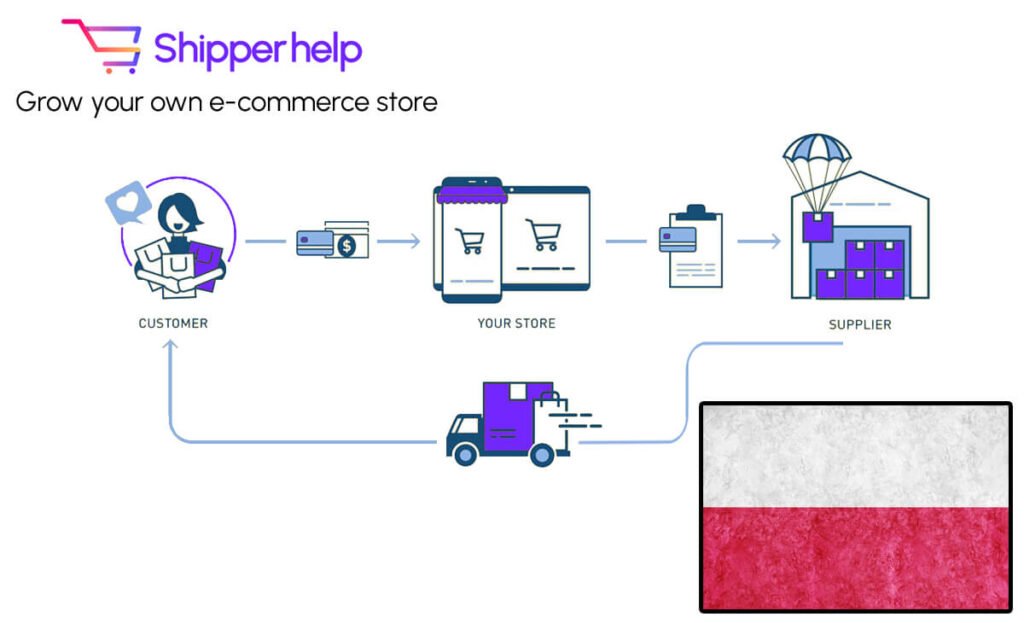
Start to help people purchase desired products!

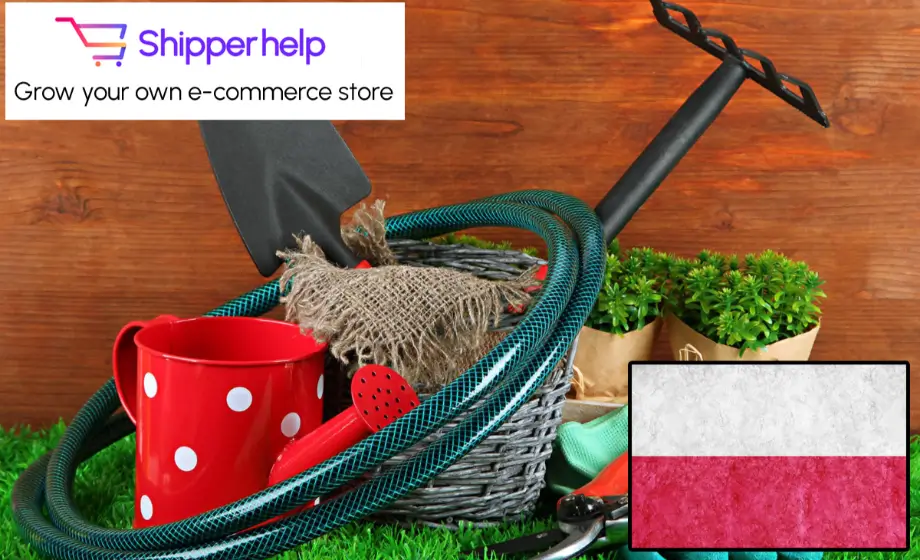
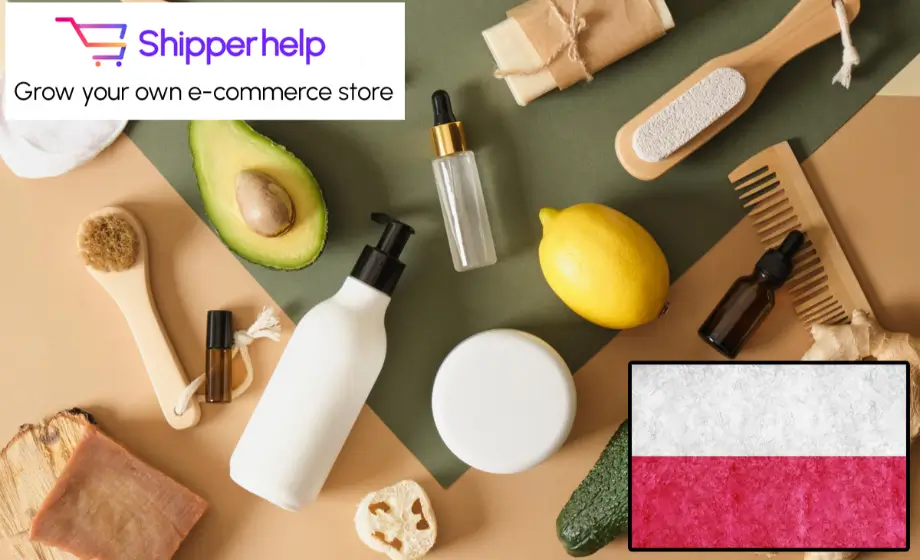
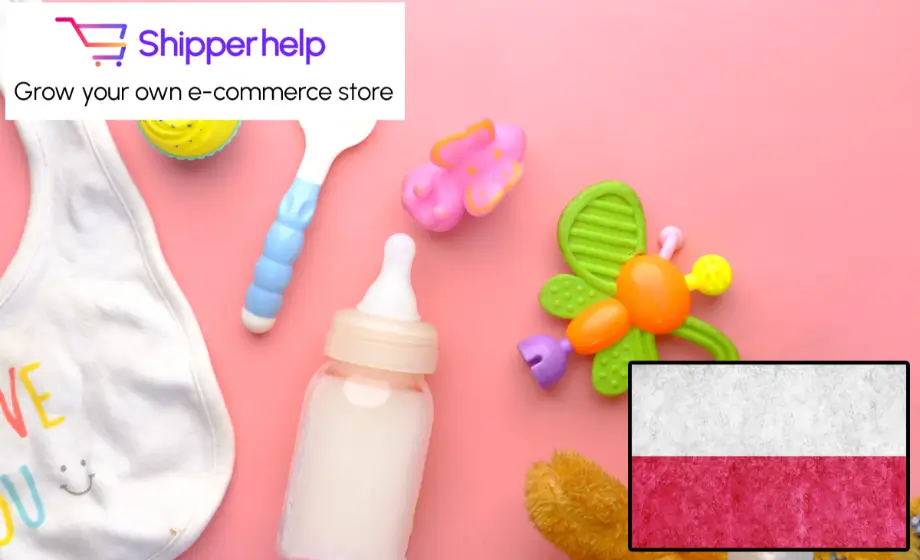
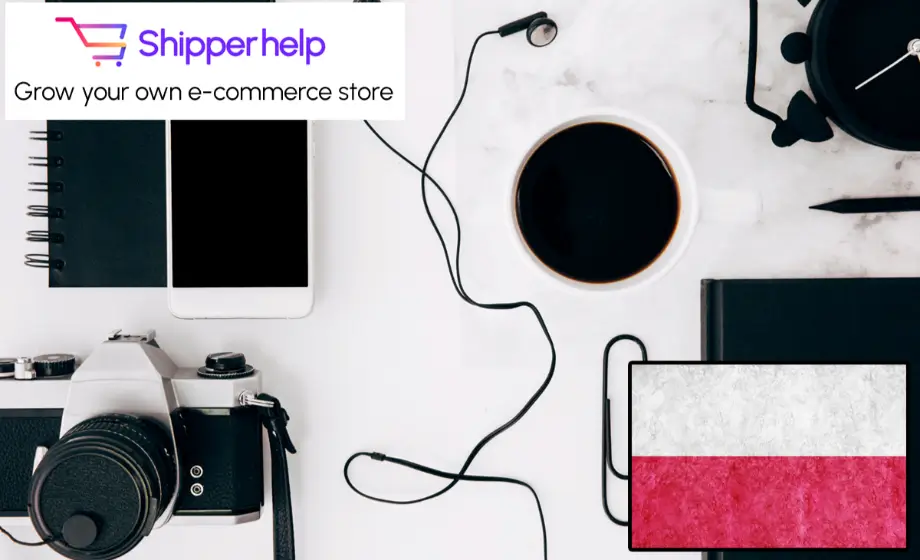

Obtaining a list of dropshipping suppliers is simple. After making a secure payment through online banking, you will immediately receive a link to download the list as pdf.
Here you can find the best products suppliers from Poland, suppliers from Turkey, suppliers from Germany, other Europe countries and around the world. Find yours and start selling in any niche.
Everything is neatly organized so you save time and money by only receiving a list of the suppliers you need. You don't have to browse between erotic suppliers if you own a children's toy store.
Our database has over 1000 suppliers including men's and women's clothing, footwear, children's products, electronics, household, garden, tourism, sports, animal products, and many more.
The list includes a large number of wholesale suppliers in addition to dropship suppliers. If you have enough money saved up, you can buy goods in bulk at a discount and sell them at a higher profit margin.
By agreeing with a particular supplier, you may be able to obtain higher discounts, thus earning a higher commission on sales, or you may be able to offer your customers to buy at competitive prices.
Poland, with its rich industrial and agricultural heritage, has become a pivotal player in the global market, offering a diverse range of top-quality products that cater to various sectors. Suppliers from Poland are renowned for their excellence in manufacturing and agriculture, making them a go-to source for businesses looking to diversify their sourcing and enhance their product offerings. Understanding the top products supplied by Polish vendors can significantly impact your sourcing strategies, ensuring you tap into the best of what Poland has to offer. This exploration will delve into the key products, the industries they support, and strategic insights to leverage these offerings for your business needs.
In conclusion, suppliers from Poland offer a wealth of opportunities for businesses looking to source high-quality, innovative, and competitively priced products across a wide range of industries. By strategically leveraging the strengths of the Polish market, businesses can enhance their product offerings, improve their competitiveness, and meet the evolving needs of their customers.
Finding reliable suppliers from Poland is a critical step in establishing a successful supply chain for your business. Polish suppliers are known for their high-quality products, competitive pricing, and innovation across a variety of industries, including furniture, automotive, food products, textiles, and more. However, navigating the vast landscape of potential suppliers can be challenging, especially when looking for partners that align with your business’s quality standards, ethical practices, and logistical requirements. Here’s a strategic approach to finding reliable Polish suppliers, with ShipperHelp.com serving as a pivotal resource in your search.
ShipperHelp.com stands out as a premier online destination for businesses seeking to connect with suppliers from Poland and beyond. This platform is dedicated to providing comprehensive, vetted lists of suppliers across various industries, making it easier for businesses to find partners that meet their specific needs. Here’s how ShipperHelp.com can be instrumental in your search:
Curated Lists of Suppliers: ShipperHelp.com offers access to curated lists of Polish suppliers that have been thoroughly vetted for reliability, quality, and business integrity. This saves businesses countless hours of research and due diligence, providing a shortcut to a pool of potential partners.
Wide Range of Industries: Whether you’re looking for furniture manufacturers, automotive parts suppliers, food producers, or textile companies, ShipperHelp.com covers a broad spectrum of industries. This diversity ensures that businesses in various sectors can find suitable suppliers.
Quality and Compliance Insights: ShipperHelp.com provides detailed information about each supplier, including their quality certifications, compliance with international standards, and customer reviews. This information is crucial for businesses that prioritize quality and regulatory compliance.
Direct Contact Information: The platform offers direct contact information for each supplier, facilitating easy communication. This direct line of contact is essential for discussing specific requirements, negotiating terms, and building a relationship with potential suppliers.
Regular Updates: The lists on ShipperHelp.com are regularly updated, ensuring that businesses have access to the latest information and new suppliers entering the market. This dynamic approach helps companies stay ahead in a competitive landscape.
Attend Trade Shows and Industry Events: Poland hosts numerous trade shows and industry-specific events, providing a valuable opportunity to meet suppliers face-to-face. These events are an excellent way to gauge the capabilities of potential suppliers, see product samples, and initiate relationships.
Leverage Business Networks: Utilize your professional network to gather recommendations for Polish suppliers. Industry associations, business contacts, and online forums can provide insights and personal endorsements that are invaluable in the vetting process.
Conduct Due Diligence: Beyond the initial discovery on ShipperHelp.com, conducting your own due diligence is crucial. This may include requesting product samples, reviewing financial records, and checking references to ensure that a supplier is both capable and reliable.
Visit Factories or Production Facilities: If feasible, visiting a supplier’s factory or production facility in Poland can provide a firsthand look at their operations, quality control processes, and work environment. Such visits can reinforce your confidence in the supplier’s ability to meet your needs.
In summary, finding reliable suppliers from Poland is a multifaceted process that requires thorough research, due diligence, and strategic networking. ShipperHelp.com emerges as a vital tool in this journey, offering businesses a streamlined path to connect with vetted, high-quality suppliers across a multitude of industries. By leveraging ShipperHelp.com alongside traditional methods of supplier discovery, businesses can establish robust, reliable supply chains that support their growth and operational goals.
Sourcing products from Poland offers a multitude of benefits for businesses looking to enhance their supply chain, diversify their product offerings, and gain a competitive edge in the market. Poland’s strategic location in Europe, combined with its robust manufacturing sector, skilled workforce, and commitment to quality, makes it an attractive sourcing destination for a wide range of industries. Here’s an in-depth look at the key advantages of sourcing from Poland, emphasizing how businesses can leverage these benefits to achieve their strategic objectives.
Poland is strategically located at the crossroads of European trade and transport routes, offering easy access to both Eastern and Western European markets. This central location facilitates efficient logistics and transportation, reducing lead times and shipping costs for businesses distributing products across Europe and beyond. The country’s well-developed infrastructure, including modern highways, ports, and airports, further enhances its logistical capabilities.
Polish suppliers are renowned for their high-quality manufacturing standards, adhering to stringent European Union regulations and quality assurance practices. This commitment to quality is evident across various sectors, including furniture, automotive, electronics, and food products, ensuring that businesses receive products that meet or exceed their expectations. Sourcing from Poland allows companies to assure their customers of product quality and safety, which is crucial in maintaining brand reputation and customer trust.
Despite its high manufacturing standards, Poland offers a competitive cost structure compared to other European countries. Lower labor costs, combined with efficient production processes and government incentives for foreign investment, make Polish products more cost-effective. This cost efficiency does not compromise quality, providing businesses with the opportunity to improve their margins or offer competitive pricing to their customers.
Poland boasts a highly educated and skilled workforce, with a strong emphasis on engineering, technology, and design. This talent pool drives innovation and creativity in product development, allowing Polish suppliers to offer unique and advanced products. Businesses sourcing from Poland can benefit from this innovative capacity to differentiate their product offerings and cater to evolving market demands.
The diversity of Poland’s industrial base is a significant advantage for businesses looking for a wide range of products. From traditional industries like furniture and textiles to emerging sectors such as information technology and green energy, Polish suppliers offer a broad spectrum of products. This diversity enables businesses to source multiple product lines from Poland, simplifying supply chain management and reducing the complexity of dealing with multiple sourcing destinations.
Polish suppliers are increasingly adopting sustainable and eco-friendly practices in response to global environmental concerns and consumer demand for green products. Businesses prioritizing sustainability can find Polish suppliers who adhere to eco-friendly production methods, use sustainable materials, and have certifications such as ISO 14001 for environmental management. Sourcing from these suppliers aligns with corporate social responsibility goals and appeals to environmentally conscious consumers.
Poland’s economy has a strong export orientation, with a government and business ecosystem supportive of international trade. This orientation ensures that Polish suppliers are experienced in handling international orders, complying with global trade regulations, and adapting to the needs of foreign markets. Businesses benefit from streamlined export processes, making it easier to integrate Polish products into their global supply chains.
As a member of the European Union, Poland offers businesses sourcing from the country access to the European Single Market. This access facilitates tariff-free trade within the EU, reducing the cost and complexity of importing goods into other EU countries. For businesses operating in or targeting the European market, sourcing from Poland can be a strategic move to leverage the benefits of the Single Market.
In conclusion, sourcing from Poland presents a compelling proposition for businesses aiming to enhance their product quality, reduce costs, and tap into innovative product development. The strategic geographic location, high-quality manufacturing standards, competitive cost structure, and diverse industrial base are just a few of the advantages that make Poland an attractive sourcing destination. By leveraging these benefits, businesses can not only improve their operational efficiency and product offerings but also contribute to sustainable and responsible sourcing practices.
The quality of Polish-made products has garnered international recognition, positioning Poland as a reputable source of high-quality goods across various sectors. This reputation is built on a foundation of skilled craftsmanship, stringent quality standards, and continuous innovation, which collectively ensure that products made in Poland meet and often exceed international expectations. The comparison of Polish-made products on the global stage reveals several key factors that contribute to their esteemed standing.
Polish manufacturers adhere to rigorous quality control processes, aligning with both national and international standards. This adherence is not just limited to compliance with European Union regulations—which are among the strictest in the world—but also extends to globally recognized certifications such as ISO 9001 for quality management systems. These standards ensure that products are manufactured consistently, safely, and to a quality that meets or surpasses that of products produced in other countries.
Poland’s educational system emphasizes technical skills, engineering, and craftsmanship, resulting in a workforce that is both highly skilled and innovative. This skill set is particularly evident in industries where craftsmanship is crucial, such as furniture manufacturing, fashion, and artisanal food production. The blend of traditional techniques with modern technology allows Polish suppliers to produce goods that are both unique and of high quality, catering to niche markets and demanding consumers worldwide.
Polish manufacturers invest in research and development (R&D) and embrace technological advancements to improve product quality and manufacturing efficiency. This commitment to innovation is evident in sectors like automotive parts, electronics, and IT, where Polish products are recognized for their advanced features, reliability, and compatibility with global standards. The integration of cutting-edge technology not only enhances product quality but also positions Poland as a competitive player in high-tech industries.
One of the most compelling aspects of Polish-made products is their ability to offer competitive pricing without compromising quality. This balance is achieved through efficient production processes, cost-effective labor, and a focus on sustainable practices, which reduce waste and lower costs. Businesses sourcing from Poland can benefit from this competitive edge, offering high-quality products to their customers at attractive prices.
Polish products and manufacturers have received numerous international awards and recognitions, further testament to their quality and innovation. From winning design awards in furniture and fashion to accolades in technology and engineering, Polish companies are frequently celebrated on the global stage. This recognition not only highlights the quality of Polish products but also builds trust with international buyers and consumers.
Poland is increasingly focused on sustainable and eco-friendly production methods, responding to global demands for environmental stewardship. Polish suppliers in industries such as textiles, cosmetics, and food production are leading the way in adopting organic materials, renewable energy, and waste-reduction practices. These efforts not only contribute to the high quality of Polish-made products but also appeal to a growing segment of consumers looking for sustainable and ethically produced goods.
Polish manufacturers are responsive to customer feedback and market trends, continually adapting their products to meet international tastes and requirements. This adaptability ensures that Polish-made products remain relevant and desirable in diverse markets, from Europe to Asia and the Americas. The ability to tailor products to specific market needs is a key factor in the international success of Polish goods.
In conclusion, Polish-made products stand out on the international stage for their quality, craftsmanship, innovation, and value. The combination of skilled labor, adherence to stringent quality standards, and a focus on sustainability makes Poland a trusted source of high-quality products for global markets. For businesses and consumers alike, Polish-made products represent a reliable, competitive, and ethical choice in a crowded international marketplace.
Polish suppliers have carved out a formidable reputation in several key industries, distinguishing themselves through quality, innovation, and competitiveness on the global stage. These industries not only showcase the breadth and depth of Poland’s manufacturing and technological capabilities but also highlight areas where Polish suppliers have developed particular expertise and competitive advantages. Understanding these industries can provide businesses and investors with insights into the strengths of the Polish market and opportunities for sourcing or collaboration.
Poland is one of the leading exporters of furniture in the world, renowned for its high-quality, innovative designs and craftsmanship. The country’s long-standing tradition in woodworking, combined with modern manufacturing technologies, allows Polish suppliers to offer a wide range of furniture products. These range from luxury hardwood pieces and bespoke designs to mass-produced items that combine aesthetics with functionality. The furniture industry’s success is driven by a focus on design, competitive pricing, and responsiveness to global trends and customer preferences.
The automotive and aerospace industries in Poland have seen significant growth, driven by foreign investment and a strong domestic supply chain. Polish suppliers excel in producing automotive components, including parts for engines, transmissions, and electronics, serving leading global manufacturers. The aerospace sector, though smaller, has also made strides, with Polish companies supplying parts and components for aircraft manufacturers. The success in these sectors is attributed to Poland’s skilled workforce, advanced engineering capabilities, and adherence to strict quality and safety standards.
Poland’s fertile land and agricultural tradition make it a leading producer and exporter of a variety of food products. Polish suppliers are particularly strong in the dairy, meat, fruit (especially apples), and vegetable sectors. The country’s food products are valued for their quality, taste, and adherence to safety standards, making Poland a key player in the European food market. Organic farming and sustainable practices are also on the rise, responding to global demands for eco-friendly and healthy food options.
The information technology (IT) and electronics sectors in Poland are rapidly growing, fueled by a highly educated workforce and significant investments in research and development. Polish suppliers and companies excel in software development, IT services, and the production of electronics, including home appliances and advanced components for various industries. The country’s IT sector is recognized for its innovation, competitive costs, and ability to deliver complex solutions and products that meet global standards.
Poland’s chemical and pharmaceutical industries are key contributors to its economy, known for their innovative products and research capabilities. Polish suppliers in these sectors offer a wide range of products, from basic chemicals and cosmetics to advanced pharmaceuticals and biotechnology solutions. The industries benefit from strong scientific foundations, investment in R&D, and a regulatory environment that supports innovation while ensuring product safety and efficacy.
The textile and fashion industries in Poland are characterized by their high-quality materials, skilled craftsmanship, and innovative designs. Polish fashion designers and textile manufacturers have gained international recognition, offering products that range from high-end fashion to functional textiles, including technical and medical fabrics. The success of these sectors is attributed to the blend of traditional techniques with modern trends and technologies, catering to both domestic and international markets.
Polish suppliers are increasingly making their mark in the green energy and environmental technology sectors, driven by global trends towards sustainability and renewable energy. The country is developing capabilities in wind and solar energy, biofuels, and environmental engineering solutions, offering products and services that support the transition to a more sustainable and low-carbon economy. This emerging strength showcases Poland’s commitment to innovation and sustainability, aligning with global environmental goals.
In conclusion, Polish suppliers excel in a variety of industries, leveraging the country’s rich industrial heritage, skilled workforce, and focus on innovation and quality. These industries represent significant opportunities for businesses looking to source high-quality products or engage in collaborative ventures. Whether in traditional sectors like furniture and food or in emerging fields like IT and green energy, Polish suppliers offer competitive advantages that can benefit companies around the world.
Selecting the right Polish supplier involves a careful evaluation of various factors, including quality, reliability, sustainability, and ethical practices. One of the critical elements in this evaluation is the certifications held by a supplier. Certifications serve as a third-party endorsement of a company’s adherence to specific standards in production, environmental management, labor practices, and more. When sourcing from Poland, recognizing and understanding the significance of these certifications can guide you to make informed decisions, ensuring that your chosen suppliers meet the high standards your business requires. Here are key certifications and standards to consider:
ISO 9001 is the most widely recognized standard for quality management systems globally. It signifies that a supplier has established processes to consistently deliver products that meet customer and regulatory requirements and is committed to continuous improvement. This certification is crucial across all industries, as it assures you of the supplier’s dedication to quality.
For businesses prioritizing environmental sustainability, ISO 14001 certification is essential. It indicates that a supplier has implemented an effective environmental management system, committed to minimizing their environmental impact, complying with applicable laws and regulations, and striving for continuous improvement in environmental performance.
This certification focuses on occupational health and safety management, ensuring that suppliers provide safe and healthy workplaces, prevent work-related injury and ill health, and continually improve OH&S performance. It’s particularly important for businesses that prioritize the welfare of workers in their supply chain.
The BRC Global Standards are relevant for suppliers in the food, packaging, storage, and distribution sectors. These standards cover critical areas such as product safety, quality, and operational criteria, ensuring that suppliers meet international food safety and quality requirements. Look for the BRC certification when sourcing food products or packaging materials to ensure compliance with the highest standards of safety and quality.
For businesses sourcing paper, wood, or forest-derived products, the FSC certification is crucial. It ensures that products come from responsibly managed forests that provide environmental, social, and economic benefits. The FSC label indicates compliance with the highest social and environmental standards on the market.
GMP certification is particularly important for suppliers in the pharmaceutical, cosmetic, and food industries. It signifies that a supplier meets stringent quality control standards in their manufacturing processes, ensuring the safety and efficacy of their products. GMP covers all aspects of production, from the raw materials to the hygiene of the manufacturing staff.
For textiles, the OEKO-TEX® Standard 100 certification is a global benchmark that ensures textiles are free from harmful substances. It’s an important certification for suppliers of clothing, home textiles, and other fabric-based products, indicating safety in textile production and materials.
SMETA is one of the most widely used ethical audit formats in the world, covering labor standards, health and safety, the environment, and business ethics. This certification is crucial for businesses committed to ethical sourcing practices, as it provides assurance that suppliers adhere to high ethical standards in their operations.
When choosing a Polish supplier, verifying these certifications provides confidence in their capabilities, reliability, and commitment to quality and ethical practices. Certifications should be a key component of your supplier selection criteria, alongside factors like cost, capacity, and compatibility with your business values. Engaging with certified suppliers not only enhances the quality and sustainability of your supply chain but also aligns with consumer expectations and regulatory requirements, thereby strengthening your brand’s reputation and market position.
Ensuring timely delivery when ordering from Polish suppliers is crucial for maintaining the efficiency of your supply chain and meeting your business commitments. Delays can lead to stock shortages, impact customer satisfaction, and affect your business reputation. Therefore, implementing strategies to secure timely delivery is essential for a smooth operation. Here are several approaches and best practices to consider:
From the outset, clearly communicate your delivery timeframes, order quantities, and any specific requirements. Setting these expectations early helps suppliers understand your needs and assess their ability to meet them.
Arrange for regular updates on the production process, any potential delays, and shipment progress. This ongoing communication can help identify issues early and allow for adjustments to keep delivery schedules on track.
Plan your orders well in advance, considering peak seasons, holidays, and potential supply chain disruptions. Early planning can give suppliers sufficient lead time to fulfill your orders without rushing, reducing the risk of delays.
Where possible, be flexible with your delivery schedules. Allowing a buffer within your timelines can accommodate minor delays without impacting your operations.
Maintain a safety stock for critical items to cushion against unexpected delays. This practice can help you manage short-term shortages without affecting your customer service levels.
Developing a strong relationship with your Polish suppliers can make them more committed to meeting your delivery needs. Suppliers are likely to prioritize clients who communicate openly, pay promptly, and show understanding and flexibility.
Work together with suppliers to identify potential bottlenecks and find solutions. A collaborative approach can lead to innovative strategies that improve delivery reliability.
Utilize technology solutions that offer real-time tracking of your orders and shipments. These systems can provide visibility into the status of your orders, helping you anticipate and manage delays.
Implement supply chain management software to optimize your logistics and inventory management. These tools can help predict demand, plan inventory levels, and schedule orders more effectively.
Relying on a single supplier for critical items can be risky. Having multiple suppliers, possibly including some outside Poland, can provide alternatives in case of disruptions or capacity issues.
For businesses operating within Europe, partnering with local logistics providers who understand the regional challenges can improve delivery efficiency.
Ensure that all your orders comply with customs regulations to prevent delays. This includes having the correct documentation and understanding import duties and taxes.
Stay informed about any regulatory changes that could affect shipping times. Being proactive can help you adjust your processes in advance to mitigate potential delays.
Negotiate clear delivery terms, including lead times, penalties for late deliveries, and terms for expedited shipments if needed. These terms should be part of your contract or purchase agreement.
Establish performance metrics and review them regularly with your suppliers. This can help in identifying areas for improvement and ensuring that your delivery expectations are being met.
Ensuring timely delivery from Polish suppliers requires a combination of clear communication, strategic planning, strong supplier relationships, and the effective use of technology. By taking these steps, you can significantly reduce the risk of delays, maintain a robust supply chain, and support the overall success of your business
Negotiating with suppliers from Poland, or any international context, requires a blend of preparation, cultural understanding, and strategic communication. Achieving favorable terms while maintaining a positive, long-term relationship with your Polish suppliers can significantly impact your business’s efficiency, cost-effectiveness, and supply chain reliability. Here are some best practices for negotiating with Polish suppliers:
Polish business culture values respect, professionalism, and formality, especially in initial meetings. Address counterparts with their proper titles unless invited to do otherwise, and ensure your approach is courteous and professional.
Polish businesspeople appreciate direct and honest communication. Be clear about your needs, expectations, and any concerns you may have. This straightforward approach is often seen as a sign of respect and can lead to more productive negotiations.
Understand the market rates for the products or services you are sourcing. Being informed about the going rates, quality standards, and lead times in Poland can strengthen your negotiation position.
Conduct thorough research on the potential supplier. Understanding their strengths, weaknesses, production capabilities, and financial stability can provide leverage in negotiations.
Before entering negotiations, clearly define what you aim to achieve. This could include pricing, payment terms, delivery schedules, minimum order quantities, or quality specifications.
Understand what is negotiable and what is non-negotiable in your requirements. Knowing where you can be flexible allows you to make concessions on less critical aspects to gain advantages in areas that matter most to your business.
Approach negotiations with a long-term relationship in mind. Polish suppliers, like many others, value trust and loyalty in business partnerships. Demonstrating that you’re looking for a mutually beneficial, ongoing relationship can open up more favorable terms.
If possible, visit the supplier in person. Face-to-face meetings can strengthen relationships, build trust, and facilitate smoother negotiations.
Effective negotiation involves give and take. Be prepared to compromise on certain aspects to reach a beneficial agreement for both parties.
Especially when negotiating in English or through interpreters, use clear and simple language to avoid misunderstandings.
Without disclosing specific details, let your supplier know that you are considering multiple quotes. This knowledge can motivate suppliers to offer more competitive terms.
Consider all factors that contribute to the total cost of ownership, including quality, service, delivery times, and payment terms. A lower price might not always equate to the best value if it compromises other important factors.
Negotiate for value-added services that can benefit your business, such as extended warranties, flexible delivery options, or after-sales support.
Ensure all negotiated terms are clearly outlined in a contract. Having a legally binding agreement can prevent future disputes.
Maintain high ethical standards throughout the negotiation process. Respectful and fair negotiations are more likely to result in a positive outcome for both parties.
Establish a feedback loop with your suppliers for continuous improvement. Open dialogue about what is working well and what could be improved can help refine the partnership over time.
Negotiating with suppliers from Poland is about finding a balance between achieving favorable terms for your business and building a strong, cooperative relationship with your supplier. By understanding the cultural context, preparing thoroughly, communicating effectively, and focusing on the long-term partnership, you can establish a successful and mutually beneficial relationship with Polish suppliers.
Understanding the VAT (Value Added Tax) system is crucial for businesses engaging in transactions with Polish suppliers, especially for those based outside Poland or within the European Union (EU). The VAT system affects the cost of goods and services and compliance with tax regulations. Here’s an overview of how VAT works in the context of purchasing from Polish suppliers, along with key considerations for businesses.
Poland applies standard and reduced VAT rates to goods and services. As of my last update, the standard VAT rate is 23%, with reduced rates of 8% and 5% for specific categories of goods and services, such as certain foodstuffs, medical supplies, and cultural events. Always check the current rates, as they may change.
Polish suppliers selling goods and services are generally required to be registered for VAT in Poland. This means they add VAT to their invoices at the appropriate rate for their products or services.
When buying goods from Poland, businesses registered for VAT in another EU country typically don’t pay VAT at the point of purchase. Instead, they account for the VAT in their home country using the reverse charge mechanism. This means they report both their sale (output VAT) and purchase (input VAT) VAT in their VAT return. This mechanism avoids the need to pay VAT upfront and then reclaim it.
Goods purchased from Poland by a VAT-registered business in another EU country are treated as intra-community acquisitions. The buyer is responsible for accounting for VAT in their home country at their local rate.
Businesses based outside the EU importing goods from Poland will generally have to pay import VAT at the point of entry into their country. The rate and procedures vary depending on the local regulations of the importing country.
Non-EU businesses may be eligible to reclaim VAT paid on goods and services purchased in Poland for business purposes, depending on the VAT agreement between Poland and the business’s home country. The process for reclaiming VAT can vary and may require the business to be registered for VAT in Poland or to use a fiscal representative.
Ensure that all invoices from Polish suppliers comply with the VAT invoicing requirements, including detailed information about the supplier, customer, type of goods/services, and the VAT amount.
Keep thorough records of all transactions, including invoices, customs declarations, and payment receipts, to support VAT reporting and potential audits.
Given the complexities of VAT regulations and the differences in requirements between countries, consulting with a tax professional familiar with both Polish and your country’s VAT laws is advisable. They can offer guidance tailored to your specific situation, helping you navigate VAT registration, reporting, and reclaiming processes.
Understanding and complying with the VAT system is essential when purchasing from Polish suppliers. It not only ensures that your business adheres to tax regulations but also helps in managing cash flows effectively by accounting for VAT costs and reclaims. By familiarizing yourself with the VAT implications of your transactions and seeking professional advice, you can make informed decisions and avoid potential pitfalls in international trade.
Polish suppliers are increasingly recognized for their flexibility, advanced manufacturing capabilities, and willingness to collaborate on custom-made products. This adaptability allows businesses to source products that are tailored to specific requirements, enhancing their competitive edge in the market. Whether you’re looking for specialized manufacturing, bespoke designs, or products that meet unique specifications, Polish suppliers can often meet these needs. Here’s how and why Polish suppliers are well-positioned to provide custom-made products for your business:
Poland’s manufacturing sector is diverse, covering a wide range of industries from furniture and textiles to automotive parts and electronics. This diversity is backed by a rich tradition of craftsmanship and a modern approach to manufacturing, which includes the use of cutting-edge technologies. Such a combination makes Polish suppliers capable of producing a wide variety of custom-made products.
Many Polish manufacturers have invested in advanced manufacturing technologies, including CNC machining, 3D printing, and automation. These technologies enable the production of highly precise and customized products, allowing for flexibility in design and functionality that can meet the specific needs of businesses across various sectors.
Poland boasts a highly skilled workforce, with a strong educational background in engineering, design, and technology. This talent pool is a crucial factor in the ability of Polish suppliers to work on complex custom projects, ensuring that the final products meet the high standards expected by clients.
Polish suppliers are known for their collaborative approach to business relationships. They often work closely with their clients throughout the product development process, from initial concept to final production, ensuring that the end product aligns with the client’s vision and requirements. Effective communication practices, including proficiency in English among professionals, further facilitate this collaborative process.
Quality is a hallmark of Polish manufacturing, with many suppliers holding international certifications that attest to their commitment to quality management, environmental standards, and industry-specific regulations. When it comes to custom-made products, this focus on quality means that businesses can expect products that are not only tailored to their specifications but also meet stringent quality and safety standards.
Despite the high quality and customization options, Polish suppliers often offer competitive pricing due to the country’s cost-effective labor and operational efficiencies. This aspect makes Poland an attractive option for businesses looking to source custom-made products without compromising on quality or exceeding budget constraints.
Provide detailed specifications and requirements for your custom products, including materials, dimensions, functionality, and any industry standards that need to be met.
Engage in prototyping with your Polish supplier. This step is crucial in ensuring that the design meets your expectations and any adjustments can be made before full-scale production.
Discuss and agree on quality assurance processes, including testing methods and compliance checks, to ensure that the final product meets your requirements.
Ensure that agreements protect your intellectual property rights, especially when developing unique products or incorporating proprietary designs.
In conclusion, Polish suppliers offer significant advantages for businesses seeking custom-made products. Their manufacturing diversity, technological capabilities, skilled workforce, and collaborative approach make them capable partners in developing products tailored to specific business needs. By establishing clear communication, focusing on quality, and protecting intellectual property, businesses can successfully collaborate with Polish suppliers to bring their custom product visions to life.
Find out what other people think
As a boutique owner, I'm always looking for high-quality, unique beauty products. The German suppliers list from Shipperhelp introduced me to some fantastic brands I now proudly stock. My customers are thrilled, and so am I. Un grand merci à Shipperhelp!.
Purchased: Perfume and beauty products suppliers information from Germany
Absolutely thrilled with the Dropshipping list from Poland I got from Shipperhelp! It was my first foray into e-commerce, and this list made it so easy to start. Found some incredible suppliers with unique products that really stand out. My store's getting great traffic thanks to this. Highly recommend.
Purchased: Various suppliers information (Dropshipping) from Poland
Finding reliable electronics suppliers can be daunting. Shipperhelp's list was a game-changer for me. High-quality suppliers with a wide range of products at competitive prices. My tech store's inventory has never looked better
Was skeptical at first about buying a suppliers list online, but Shipperhelp's furniture list from Poland was a pleasant surprise. Found exactly what my store needed - quality furniture at good prices. Easy process, great results.
Purchased: Furniture suppliers information from Poland
Expanding my gift shop's inventory with unique items was easy with Shipperhelp's Polish suppliers list. Exceptional variety and creativity in products. My sales have gone up. Serdecznie dziękuję, Shipperhelp!
Purchased: Gifts and souvenirs suppliers information from Poland
Finding top-notch organic suppliers was crucial for my health-focused e-commerce. The Polish suppliers list from Shipperhelp was a goldmine of quality and reliability. My customers are delighted with the variety and quality. Shipperhelp is an invaluable resource
Purchased: Organic food and supplement suppliers information from Poland
Finding safe and educational toys for my online store was a priority. The Polish suppliers list from Shipperhelp offered just that. Quality toys that parents trust and kids love. Suur tänu, Shipperhelp, for making this possible
Purchased: Kids toys suppliers information from Poland
Expanding my pet store with unique and quality products was made easy with the Turkish suppliers list from Shipperhelp. Our furry friends and their owners are thrilled. Shipperhelp is fantastic selection
Introducing luxury German beauty products into my boutique significantly uplifted my brand. Shipperhelp's suppliers list was key to sourcing these high-quality items. My customers love the new range. Didelis ačiū
Purchased: Perfume and beauty products suppliers information from Germany
Simply fill out the inquiry form, and one of our specialists will contact you with a customized offer and answers to all your questions. Get a professional online store with all needed integrations! We also provide product import / export from XML or other files, product translation and shop maintenance services.
Enter your email below to get news about the latest shipping lists and interesting insights.